Analyzing data Normal Science Worksheets for Ages 5-8
5 filtered results
-
From - To
Welcome to our "Analyzing Data Normal Science Worksheets" designed specifically for children aged 5-8! These engaging worksheets help young learners develop essential skills in data analysis through fun, age-appropriate activities. Kids will explore concepts like organizing, interpreting, and drawing conclusions from various data types, fostering critical thinking and scientific reasoning. Each worksheet encourages hands-on learning with vibrant illustrations, making complex ideas accessible and enjoyable. Perfect for classroom or home education, our resources align with early curriculum standards, promoting foundational STEM skills. Dive into our collection and watch your child's confidence grow as they become budding scientists!
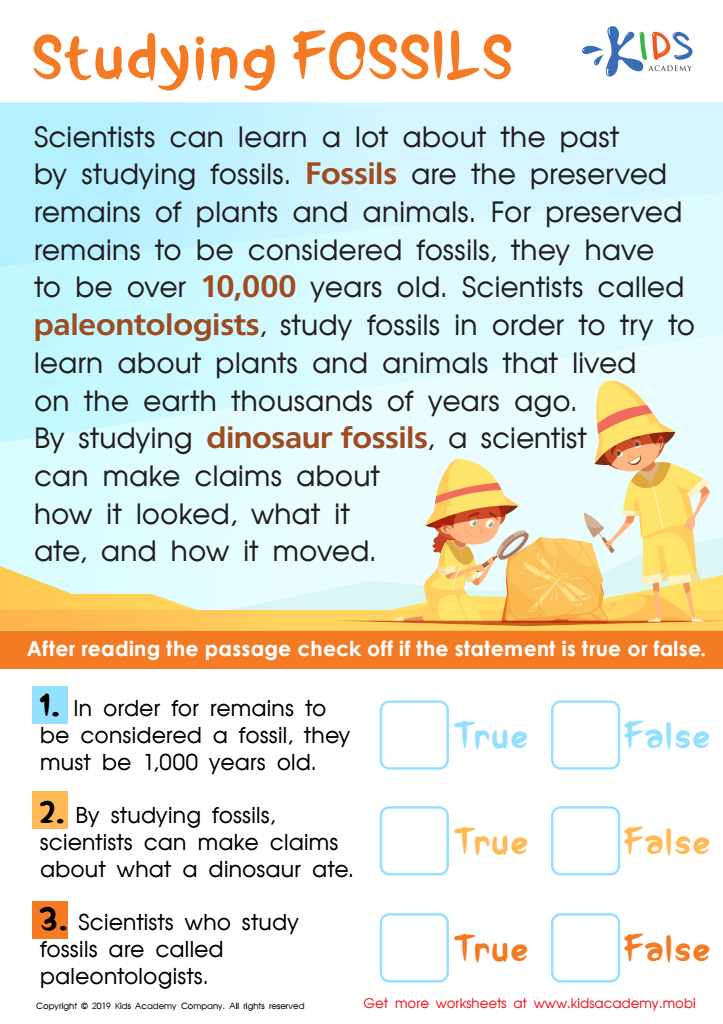

Studying Fossils Worksheet
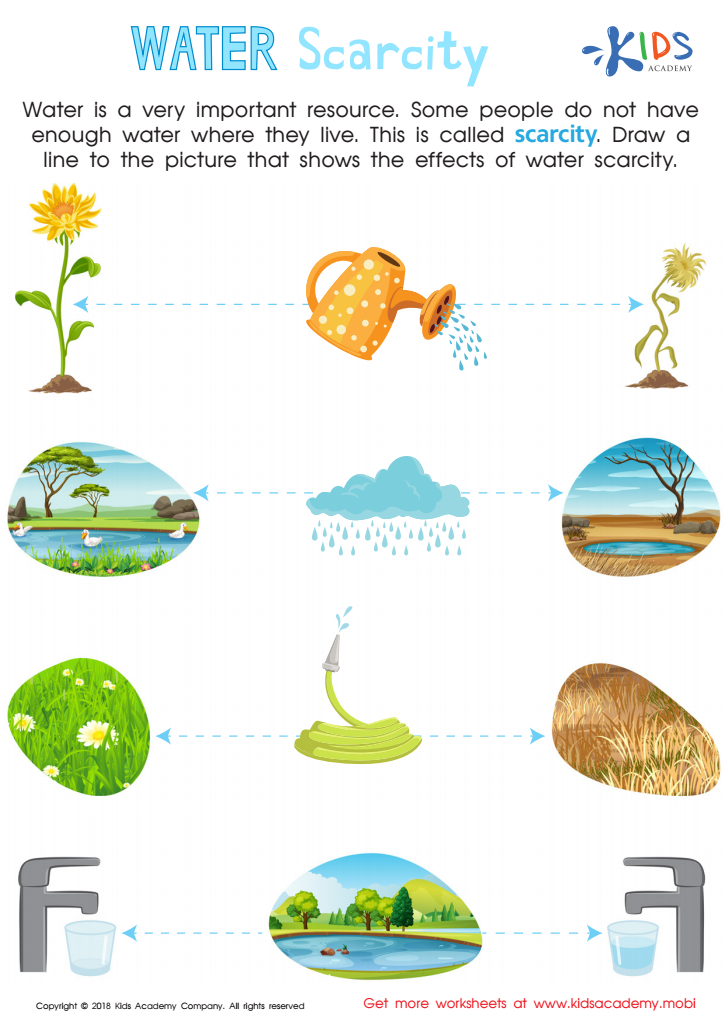

Water Scarcity Worksheet
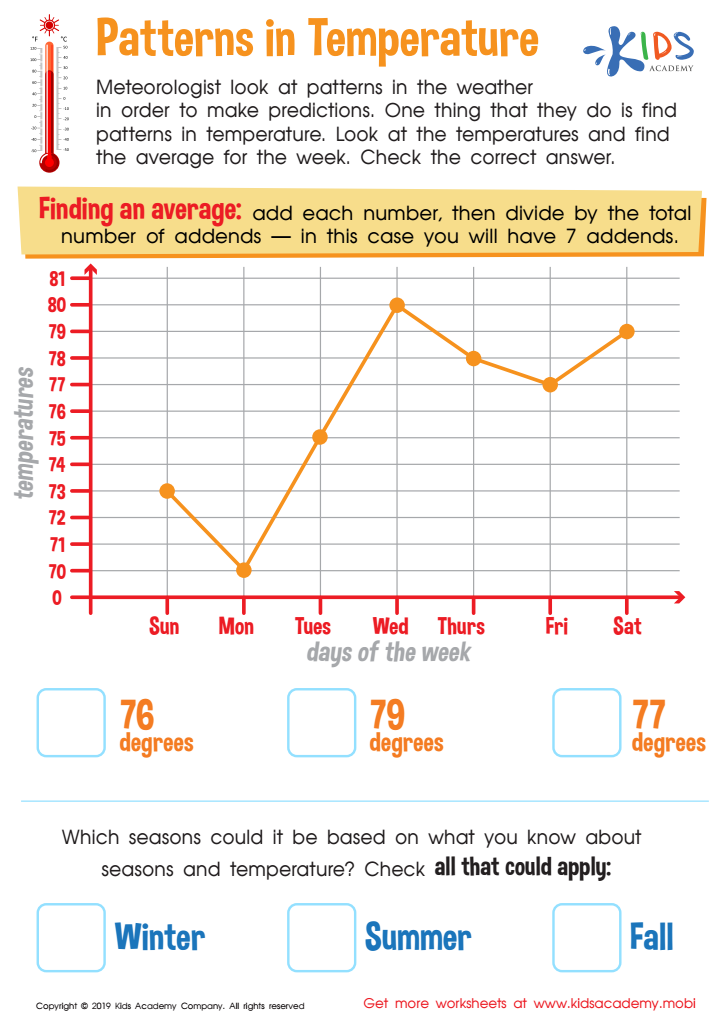

Patterns in Temperature Worksheet
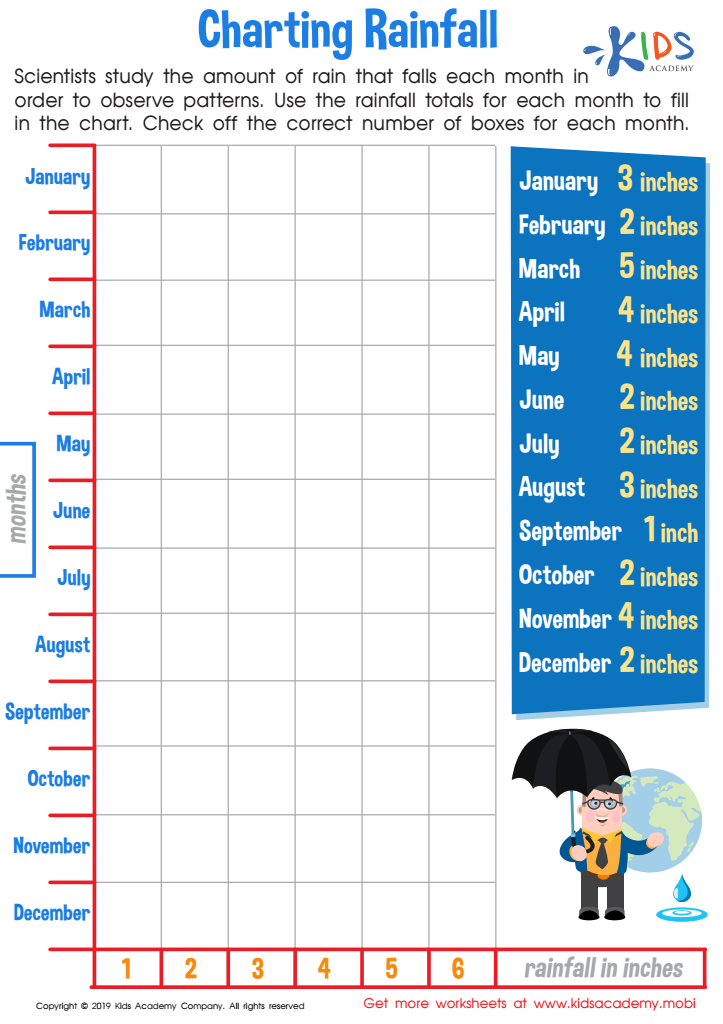

Charting Rainfall Worksheet
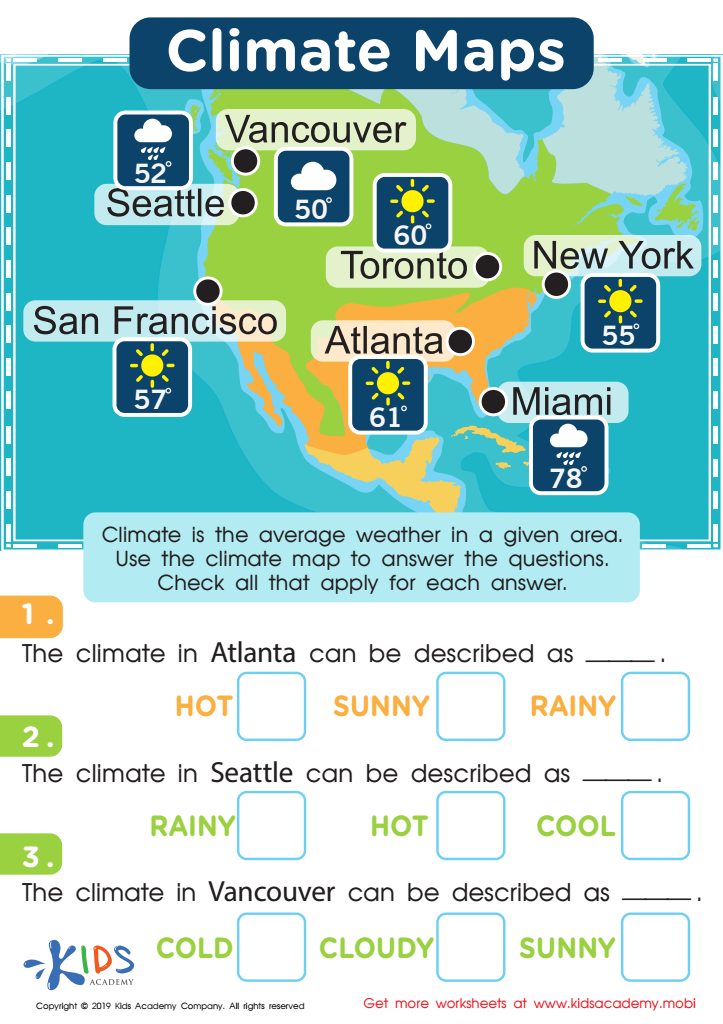

Climate Maps Worksheet
Analyzing data, even in the context of normal science for ages 5-8, is vital for parents and teachers as it cultivates critical thinking and inquiry skills in young children. Children's natural curiosity can be harnessed to explore patterns, make predictions, and draw conclusions, laying a strong foundation for scientific literacy. Early experiences with data analysis encourage children to observe their environment closely and ask meaningful questions, promoting their engagement in the learning process.
Moreover, understanding basic data concepts helps children develop mathematical skills, such as counting, comparing, and classifying. This is an excellent way to integrate math and science, showing students that these subjects are interconnected and applicable in their daily lives. Through analyzing simple data — like favorite colors or types of animals — children learn to communicate their findings, supporting language development and social skills.
For parents and teachers, fostering these skills not only prepares children for more advanced scientific concepts later on but also instills a lifelong love of learning. Ultimately, by valuing data analysis in the classroom and at home, we empower children to become inquisitive thinkers who can navigate a data-driven world confidently and effectively.
 Assign to My Students
Assign to My Students



















